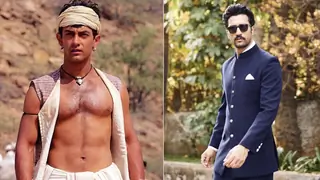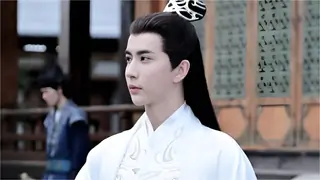An Estimate and Place of Akbar in History (Akbar as a National King)
Akbar was the greatest among the Mughul Emperors, one among the great rulers of India and also one among the most reputed and powerful rulers of the world. All contemporary and modern historians have praised him as one of the great rulers of India. Lane-Poole described him as "the noblest king that ever ruled in India: and as :the true founder and organiser of the empire."He also remarked that his age "represents the golden age of the empire." Even V.A Smith who has commented against him at many places says: "He was a born King of men, with a rightful claim to be one of the mightiest sovereigns known to history. That claim rests surely on the basis of his extraordinary natural gifts , his original ideas, and his magnificent achievements."
Akbar possessed an attractive and imposing personality. He was an obedient son, a lovable husaband and a generous father. He respected and loved all his friends and relatives. He wept bitterly at the death of his friend, Abul Fazl and did not take his food for two days. He possessed many humane virtues because of which he accepted the welfare of his subjects as one of his primary responsibilities and was most generous towards the poor and weaker sections of the society. His physique was strong and well-maintained though he was a man of medium height. He was not educated but he respected and patronized scholars. He constructed a bibrary which had 24,000 texts which cost nearly rupees sixty-five lacs. He was fond of sports and hunting. He was expert in handling all arms, was a fine shot and sturdy rider. He was capable of hard labour and was extraordinarily courageous to face difficulties and even to risk his life in battles. He had absolute faith in God but was tolerant to all religions. As regards religion, he was pioneer of a new policy. Akbar was illiterate but, by coming in contact with scholars in different fields, he had acquired useful knowledge in philosophy, religion, literature, history, etc. He justified it by bringing different innovatiosn in religion and civil and military administration and also by implementing them successfully. Akbar possessed a sharp memory and remembered things quickly. He, of course, took intoxicants like wine and opium but was not an addict and as his age grew he observed better restraint and left or reduced to minimum even meat-eating. Like all other rulers of that age, Akbar too had many wives and there were nearly 5,000 women in his harem and certainly, many among them were his concubines. Yet, he was not a debauch. The stories of holding Meena Bazar to find out and capture beautiful women and the attempt of Akbar to disnonour the wife of Prithvi Raj Rathore of Bikaner seem to be false legends. It is possible that Akbar might have engaged himself in some such follies in his young age but as he grew up to maturity he certainly became sober and temperate. That is why we find instances of cruelty and violence during his early period but, during later period of his ruler, these are absent.
Akbar was a daring soldier and a capable commander. He proved his courage and determination in many battles. He led many campaigns in person and brought them to success. The mobility of the Mughul army increased during his time. His campaing to suppress the revolt in Gujarat has been regarded as a 'historic campaign'. He improved fighting tactics, arms and organisation of the Mughul army so that it became invincible during hsi time. The history of his reign is full of successful military campaigns and extension fo the empire.
Akbar proved himself as an innovator in many fields of administration. Besides, he possessed practical wisdom to implement those innovations successfully. The administration which he established survived successfully during the reigns of his powerful descendatns and neede no change on principles. The duties and responsibilites of teh emperor, teh central and the provincial administration, the revenue system, the coinage, the mansabdari system etc. as defined and established by him were taken over and carried on by hi successors. It was Akbar who provided the administration which was universally applied throughout the territories of the Mughul emprie and provided same treatment to his all subjects.
As a ruler and statesman, the religous and the Rajput policy of Akbar were not only novel but exteremly successful. These provided a firm base and a new direction to the Mughul army. and were largely responsible for pwoer and glory of the Mughul empire. Akbar also attemtped to create uniform culture among his subjects. The means which he adopted for the literary and artistic growth among his subjects led to a uniform Indian style in different fields and provided incentive to the progress of literature and fine arts.
Thus the character and personality fo Akbar was that of a grand monarch. He was successful both as an individual and an Emperor. His lfie and ideals were inspiring to others as a ruler, conqueror , administrator, statesman and a monarch. That is why Akbar alone has been reagared as 'the great' among the Mughul emperors. Edwards and Grrett wrote: "Akbar has proved his worth in different fields of action. He was an intrepid soldier, a great general, a wise administrator, a benevolent ruler , and a sound judge of character. He was a born leader of men and can rightly claim to be one of the mightiest sovereigh know to history...During a reing of nearly fifty years, he built up a powerful Empire which could vie with the strongest and established a dynasty whose hold over India was nto contested by any rival for about a century. His reign witnessed the fianl transformation of the Mughuls from merely military leaders into a permanent Indian dynasty."
Historians have described Akbar as a great ruler because of another reason as well and it is that he was a "national king." A ruler can claim to be a national leader only when he does nto discriminate among his subjects in any field on any ground, whether it may be family, religion, caste or anythign else. Akbar was such a monarch. He attempted the welfare of all his subjects without any discrimination on any ground. Prior to him, the Muslims rulers maintained distinction between their Hindu and Muslim subjects. Their Muslim subjects enjoyed certain privileges from the state simply because their religion was Islam while the Hindsu suffered from certain serious handicaps simply because they were Hindus. Akbar attempted seriously to finish this discrimination and injustice among his subjects. He was the first Muslim emperor of Delhi who provided all his subjects alike.

















367